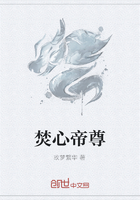The Central Power was to interfere. It sent two commissioners, Welcker, the ex-Liberal, and Mosle, to Vienna. The travels of Don Quixote and Sancho Panza form matter for an Odyssey in comparison with the heroic feats and wonderful adventures of those two knight-errants of German Unity. Not daring to go to Vienna, they were bullied by Windischgratz, wondered at by the idiot Emperor, and impudently hoaxed by the Minister Stadion. Their despatches and reports are perhaps the only portion of the Frankfort transactions that will retain a place in German literature; they are a perfect satirical romance, ready cut and dried, and an eternal monument of disgrace for the Frankfort Assembly and its Government.
The left side of the Assembly had also sent two commissioners to Vienna, in order to uphold its authority there--Froebel and Robert Blum. Blum, when danger drew near, judged rightly that here the great battle of the German Revolution was to be fought, and unhesitatingly resolved to stake his head on the issue. Froebel, on the contrary, was of opinion that it was his duty to preserve himself for the important duties of his post at Frankfort. Blum was considered one of the most eloquent men of the Frankfort Assembly; he certainly was the most popular. His eloquence would not have stood the test of any experienced Parliamentary Assembly; he was too fond of the shallow declamations of a German dissenting preacher, and his arguments wanted both philosophical acumen and acquaintance with practical matters of fact. In politics he belonged to "Moderate Democracy," a rather indefinite sort of thing, cherished on account of this very want of definiteness in its principles. But with all this Robert Blum was by nature a thorough, though somewhat polished, plebeian, and in decisive moments his plebeian instinct and plebeian energy got the better of his indefiniteness, and, therefore, indecisive political persuasion and knowledge. In such moments he raised himself far above the usual standard of his capacities.
Thus, in Vienna, he saw at a glance that here, not in the midst of the would-be elegant debates of Frankfort, the fate of his country would have to be decided. He at once made up his mind, gave up all idea of retreat, took a command in the revolutionary force, and behaved with extraordinary coolness and decision. It was he who retarded for a considerable time the taking of the town, and covered one of its sides from attack by burning the Tabor Bridge over the Danube. Everybody knows how, after the storming, he was arrested, tried by court-martial, and shot. He died like a hero.
And the Frankfort Assembly, horrorstruck as it was, yet took the bloody insult with a seeming good grace. A resolution was carried, which, by the softness and diplomatic decency of its language, was more an insult to the grave of the murdered martyr than a damning stain upon Austria. But it was not to be expected that this contemptible Assembly should resent the assassination of one of its members, particularly of the leader of the Left.
LONDON, March, 1852.
Footnotes [1] "Die Neue Rheinische Zeitung" (The New Rhenish Gazette). After the March revolution, 1848, Marx returned from Paris to Germany, and settling down--for the time being--at Cologne, founded this paper. Although the "Neue Rheinische Zeitung" never went in for propounding "Communist schemes," as Mr. Dawson, e. g., says it did, it became a very nightmare to the Government. Reactionaries and Liberals alike denounced the "Gazette," especially after Marx's brilliant defence of the Paris Insurrection of June. The state of siege being declared in Cologne, the "Gazette" was suspended for six weeks--only to appear with a bigger reputation and bigger circulation than before. After the Prussian "coup d'etat" in November, the "Gazette" published at the head of every issue an appeal to the people to refuse to pay taxes, and to meet force by force. For this and certain other articles the paper was twice prosecuted.
On the first occasion the accused were Marx, Engels, and Korff; on the second and more important trial, they were Marx, Schapper, and Schneider.
The accused were charged with "inciting the people to armed resistance against the Government and its officials." Marx mainly conducted the defence, and delivered a brilliant speech. "Marx refrains" (in this speech) "from all oratorical flourish; he goes straight to the point, and without any peroration ends with a summary of the political situation. Anyone would think that Marx's own personality was to deliver a political lecture to the jury. And, in fact, at the end of the trial, one of the jurors went to Marx to thank him, in the name of his colleagues, for the instructive lecture he had given them." (See Bernstein's work, "Ferdinand Lassalle.")The accused were unanimously acquitted by the jury. Among the better known of the contributors of the "New Rhenish Gazette," edited by Marx, were Engels, W. Wolff, Werth, Lassalle; while Freiligrath wrote for it his splendid revolutionary poems. Perhaps one of the grandest of these is the celebrated "Farewell of the "Rhenish Gazette"." when on the 19th May, l849, the final number of the paper--suppressed by the Government--appeared, printed in red type.
"When the last of crowns like glass shall break, On the scene our sorrows have haunted.
And the people the last dread 'Guilty' shall speak, By your side ye shall find me undaunted.
On Rhine or on Danube, in word and deed, You shall witness, true to his vow, On the wrecks of thrones, in the midst of the freed The rebel who greets you now."
(Translated by Ernest Jones.)














